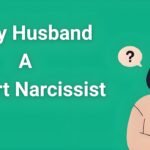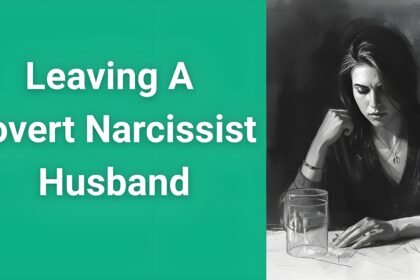If you’ve found yourself typing “I hate my covert narcissist husband” into a search engine at 2 AM, take a deep breath. The intense emotions you’re experiencing—the overwhelming frustration, the deep-seated resentment, and yes, even hatred—are completely normal responses to what you’ve been enduring. You’re not a terrible person, you’re not losing your mind, and you’re definitely not alone in feeling this way.
- What Makes a Covert Narcissist Husband Different
- Why You Feel Like You Hate Your Covert Narcissist Husband
- The Hidden Signs You’ve Been Missing
- The Psychological Impact on You
- Understanding Trauma Bonding
- What You Can Do Right Now
- Professional Help and Resources
- Planning Your Next Steps
- Healing and Recovery
- Frequently Asked Questions
- You Deserve Better
The relationship with a covert narcissist husband creates a unique form of psychological warfare that leaves you questioning your own reality. Unlike their overt counterparts who display obvious grandiosity, covert narcissists operate through subtle manipulation, passive aggression, and emotional withholding that slowly erodes your sense of self over months or years.
Understanding why you feel such intense negative emotions toward your covert narcissist husband is the first step toward reclaiming your sanity and making informed decisions about your future. Let’s explore exactly what’s been happening to you and why your emotional response is not only understandable but completely justified.
What Makes a Covert Narcissist Husband Different
The covert narcissist husband presents a particularly insidious challenge because he doesn’t fit the stereotypical image of narcissism. While overt narcissists demand attention and openly display their sense of superiority, covert narcissists hide their narcissistic traits behind a facade of humility, sensitivity, or even victimhood.
Your covert narcissist husband likely appears charming and agreeable to the outside world. Friends, family members, and colleagues probably think he’s a “great guy” who is patient, helpful, and understanding. This public persona makes your private experience of emotional abuse even more isolating and confusing.
Behind closed doors, however, you experience a completely different person. The covert narcissist husband uses subtle forms of manipulation that are harder to identify and even harder to explain to others. These behaviors include:
Emotional Withholding and Silent Treatment
Your covert narcissist husband punishes you through withdrawal rather than explosive anger. He might give you the silent treatment for days or weeks, refuse to engage in meaningful conversation, or become emotionally unavailable precisely when you need support most. This passive-aggressive behavior leaves you walking on eggshells, constantly trying to figure out what you did wrong.
Subtle Undermining and Criticism
Rather than direct insults, the covert narcissist husband employs backhanded compliments, subtle put-downs, and seemingly innocent comments designed to chip away at your self-esteem. He might say things like “You look nice, but that dress makes you look bigger than usual” or “I’m surprised you managed to handle that situation so well.”
Playing the Victim
When confronted about his behavior, your covert narcissist husband immediately shifts into victim mode. He becomes the wounded party, claiming you’re being too sensitive, critical, or demanding. This manipulation technique, called DARVO (Deny, Attack, Reverse Victim and Offender), leaves you apologizing for bringing up legitimate concerns about his treatment of you.
Why You Feel Like You Hate Your Covert Narcissist Husband
The intense negative emotions you’re experiencing toward your covert narcissist husband aren’t character flaws—they’re natural psychological responses to prolonged emotional abuse and manipulation. Understanding the reasons behind these feelings can help validate your experience and guide your decision-making process.
Chronic Invalidation Creates Resentment
Living with a covert narcissist husband means your thoughts, feelings, and experiences are consistently invalidated or dismissed. When you try to express concerns about his behavior, he might respond with phrases like “You’re being too sensitive,” “You’re imagining things,” or “I never said that.” This constant invalidation creates a deep well of resentment that grows stronger over time.
The human psyche can only tolerate so much invalidation before it rebels. Your hatred is actually a healthy psychological response—your mind’s way of protecting itself from further harm by generating strong negative emotions that signal something is fundamentally wrong in the relationship.
Emotional Exhaustion Breeds Contempt
The mental energy required to constantly decode your covert narcissist husband’s behavior, walk on eggshells to avoid his passive-aggressive reactions, and maintain your sanity in the face of subtle gaslighting is enormous. This chronic emotional exhaustion often manifests as contempt, disgust, or hatred toward the person causing the stress.
You might find yourself feeling physically sick when he enters the room, dreading conversations with him, or fantasizing about what life would be like without him. These reactions aren’t signs that you’re a bad person—they’re your nervous system’s way of trying to protect you from ongoing psychological harm.
Trapped Feelings Intensify Negative Emotions
Many people married to covert narcissist husbands feel trapped in their relationships due to financial dependence, shared children, social expectations, or fear of the unknown. When you feel unable to escape a harmful situation, negative emotions naturally intensify as a psychological pressure valve.
The hatred you feel may actually be your psyche’s way of motivating you toward self-preservation and eventual escape from a damaging relationship dynamic.
The Hidden Signs You’ve Been Missing
Covert narcissist husbands are masters of flying under the radar. Their abuse is so subtle that many victims don’t recognize it as abuse until the psychological damage is already significant. Let’s examine some key behaviors you may have normalized or rationalized away:
The Helpful Husband Who Creates More Work
Your covert narcissist husband might volunteer to help with household tasks or childcare, but somehow his “help” always creates more problems. He’ll do laundry but leave clothes wrinkled, cook dinner but leave a massive mess, or watch the children but fail to follow their routines or your instructions.
When you mention these issues, he becomes defensive and points out all the ways he was trying to help. This pattern keeps you grateful for minimal effort while ensuring you continue to carry the mental load of managing the household.
The Mind Reader Expectation
Your covert narcissist husband expects you to anticipate his needs, preferences, and moods without him having to communicate them directly. When you fail to read his mind, he becomes sullen, withdrawn, or passive-aggressive. You might find yourself constantly scanning his facial expressions and body language, trying to figure out what he wants or needs to avoid his negative reactions.
The Emotional Vampire
While appearing sensitive and understanding on the surface, your covert narcissist husband subtly drains your emotional energy. He might monopolize conversations with his own problems and concerns, show little genuine interest in your experiences, or somehow turn every discussion back to himself.
You may notice that interactions with him leave you feeling depleted rather than connected or supported.
The Psychological Impact on You
Living with a covert narcissist husband creates specific psychological effects that compound over time. Understanding these impacts can help you recognize how the relationship has affected your mental health and well-being.
Learned Helplessness and Decision Paralysis
The constant second-guessing and invalidation from your covert narcissist husband may have created a pattern of learned helplessness. You might find yourself unable to make decisions without his input, constantly seeking validation for choices that should be straightforward, or feeling overwhelmed by options that once seemed simple.
This isn’t weakness—it’s a natural response to having your judgment consistently undermined and questioned.
Hypervigilance and Anxiety
Your nervous system has likely adapted to the chronic stress of living with a covert narcissist husband by becoming hypervigilant. You might find yourself constantly monitoring his moods, anticipating his reactions, or feeling anxious about potential conflicts.
This state of chronic alertness is exhausting and can lead to physical symptoms like headaches, digestive issues, sleep problems, and immune system suppression.
Identity Erosion
Over time, the subtle manipulation and control from your covert narcissist husband may have eroded your sense of self. You might struggle to remember who you were before the relationship, feel uncertain about your own preferences and opinions, or find it difficult to identify your own needs and desires.
This identity erosion is one of the most insidious effects of covert narcissistic abuse because it happens so gradually that you may not realize it’s occurring until the damage is significant.
Understanding Trauma Bonding
One of the most confusing aspects of being married to a covert narcissist husband is the way your feelings fluctuate between hatred and attachment. This isn’t inconsistency on your part—it’s the result of trauma bonding, a psychological phenomenon that occurs in abusive relationships.
Trauma bonding happens when intermittent reinforcement creates powerful psychological and chemical dependencies. Your covert narcissist husband likely alternates between periods of emotional withdrawal and occasional warmth or affection. These unpredictable moments of positive attention create a chemical response in your brain similar to gambling addiction.
Understanding trauma bonding helps explain why leaving feels so difficult even when you consciously recognize the relationship is harmful. The neurological addiction created by this pattern isn’t something you can simply will away—it requires specific strategies and often professional support to overcome.
If you find yourself obsessively thinking about your husband, checking his social media, or feeling physically ill when considering separation, these may be signs that trauma bonding has occurred. This biological response to intermittent reinforcement is extremely common in relationships with covert narcissists and doesn’t reflect any weakness or failure on your part.
What You Can Do Right Now
Recognizing that you’re dealing with a covert narcissist husband is the crucial first step, but knowing what to do with this information can feel overwhelming. Here are immediate steps you can take to protect your mental health and begin reclaiming your sense of self:
Document the Patterns
Start keeping a private journal documenting specific incidents of manipulative behavior from your covert narcissist husband. Write down what happened, how it made you feel, and any gaslighting or invalidation that followed. This documentation serves two purposes: it helps you recognize patterns you might otherwise dismiss or forget, and it provides validation for your experiences when self-doubt creeps in.
Create Emotional Distance
Begin practicing emotional detachment techniques when interacting with your covert narcissist husband. This doesn’t mean becoming cold or hostile, but rather protecting your emotional energy by not engaging with his manipulation attempts. When he uses silent treatment, don’t chase after him for explanation. When he makes subtle criticisms, don’t defend yourself or seek his approval.
Rebuild Your Support Network
Covert narcissist husbands often isolate their partners by subtly discouraging friendships and family relationships. Begin reconnecting with people who knew and loved you before this relationship. If those connections have been damaged, consider joining support groups or finding a therapist who understands narcissistic abuse.
Establish Small Boundaries
Start with manageable boundaries that don’t create major conflict but begin reasserting your autonomy. This might mean making decisions about your appearance, social activities, or personal interests without seeking his approval or input.
Professional Help and Resources
While self-help strategies are valuable, dealing with a covert narcissist husband often requires professional support to fully understand the dynamics at play and develop effective coping strategies.
Specialized Assessment for Clarity
If you’re still questioning whether you’re really dealing with covert narcissism or wondering if you might be the problem, a comprehensive analysis from someone who specializes in narcissistic abuse can provide the clarity you need. Getting expert validation of your experiences can be the breakthrough moment that allows you to move forward with confidence.
Professional assessments can help identify specific manipulation tactics being used against you, analyze the psychological damage that’s occurred, and provide a personalized roadmap for healing and decision-making. This type of specialized analysis goes far beyond general couples counseling and focuses specifically on the unique challenges of narcissistic abuse.
Breaking Free from Trauma Bonds
The biochemical addiction created by trauma bonding requires specific interventions to overcome. Professional resources that focus on the neurological aspects of trauma bonding can help you understand why leaving feels so difficult and provide science-based strategies for breaking the psychological chains that keep you attached.
These specialized approaches address the addiction-like nature of trauma bonds and provide step-by-step methods for rewiring your brain’s response to intermittent reinforcement. Understanding the neuroscience behind your attachment can be incredibly freeing and help reduce self-blame.
Planning Your Next Steps
Whether you decide to try working on the relationship or choose to leave your covert narcissist husband, having a clear plan is essential for protecting your mental health and ensuring your safety.
If You’re Not Ready to Leave
If circumstances require you to stay in the relationship temporarily, developing survival strategies becomes crucial. Learning how to protect your emotional and psychological well-being while remaining in a harmful dynamic requires specific skills and support.
Focus on maintaining your sense of reality through documentation, outside perspectives, and regular check-ins with trusted friends or professionals. Develop safety plans for both physical and emotional protection, and begin building the resources and support systems you’ll need for eventual independence.
If You’re Ready to Plan an Exit
Leaving a covert narcissist husband requires careful planning because their manipulation often intensifies when they sense loss of control. This isn’t about being dramatic—it’s about recognizing that covert narcissists can become vindictive and dangerous when their primary source of narcissistic supply is threatened.
Consider consulting with professionals who understand the specific challenges of leaving narcissistic relationships, including legal advisors familiar with high-conflict divorces and therapists who specialize in narcissistic abuse recovery.
Healing and Recovery
Regardless of your decision about the relationship, healing from the psychological impact of living with a covert narcissist husband is essential for your long-term well-being.
Rebuilding Your Identity
Recovery involves rediscovering who you are apart from your role as his wife and victim of his manipulation. This process takes time and often involves grieving the person you were before the relationship and the dreams you may have had about what the marriage could have been.
Learning to Trust Yourself Again
One of the most significant challenges in recovery is learning to trust your own perceptions, feelings, and judgment again. Years of gaslighting and invalidation can leave you questioning your ability to accurately assess situations and people.
Working with professionals who understand narcissistic abuse can help you rebuild confidence in your own reality and develop better boundaries for future relationships.
Frequently Asked Questions
Absolutely. Hatred is a natural response to chronic emotional abuse and manipulation. These intense negative feelings are your psyche’s way of protecting you from ongoing harm and shouldn’t be a source of shame.
While people can work on narcissistic traits, true personality change is extremely rare. Covert narcissists rarely acknowledge their behavior as problematic, making genuine therapeutic progress unlikely.
Covert narcissists are skilled at maintaining positive public personas while reserving their manipulative behavior for private relationships. This makes your experience more isolating but doesn’t invalidate it.
While challenging, it’s possible to reduce trauma bonding effects through awareness and specific strategies. However, full recovery typically requires ending the source of intermittent reinforcement.
You Deserve Better
If you’ve made it to the end of this article, you’ve already taken a courageous step toward understanding your situation and validating your experiences. The fact that you’re seeking information and questioning your relationship dynamics shows incredible strength and self-awareness.
Remember that feeling like you hate your covert narcissist husband doesn’t make you a bad person—it makes you human. Your emotional responses are valid, your experiences matter, and you deserve to be treated with genuine respect and care.
The path forward may feel uncertain, but you don’t have to navigate it alone. Professional support, validated information, and practical strategies can help you make informed decisions about your future and begin the healing process, regardless of what you choose to do about your marriage.
Your life has value beyond your role as his wife. You deserve relationships built on mutual respect, genuine care, and emotional safety. Whether that future includes working on your current relationship or building a new life without him, the first step is acknowledging that what you’ve experienced is real, harmful, and not your fault.
You’re not crazy. You’re not too sensitive. You’re not the problem. You’re a survivor of subtle but significant psychological abuse, and recognizing that truth is the beginning of reclaiming your power and rebuilding your life.







